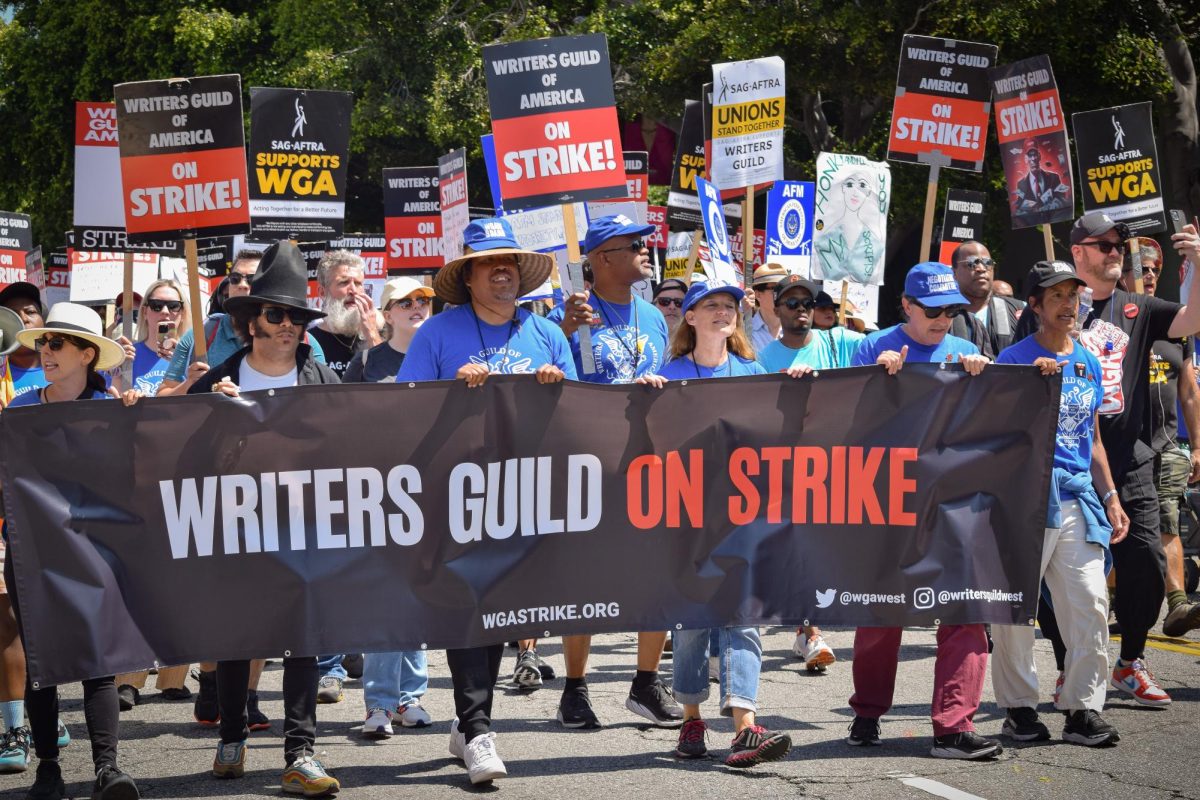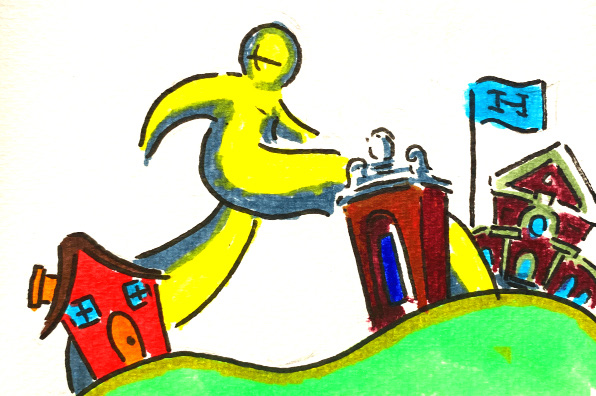One hundred and forty-one days have passed since the start of the Writers Guild of America (WGA) and Screen Actors Guild (SAG-AFTRA) strikes. While hopeful news of negotiations between studios and unions has emerged this week, controversies over responses to the strikes have also dominated the news.
On March 2, for the second time in the 21st century, the WGA announced a major protest, aiming to improve working conditions for screenwriters. Their demands include salary increases, improved health and pension plans, and restrictions on the use of artificial intelligence in film, TV, and streaming productions. In July, SAG joined the strike, making this the first joint strike in 63 years.
The strike has involved over eleven thousand writers, affected the filming of over a hundred shows, and cost over $3 billion just in California. With the number of writers and actors on strike, it’s not surprising that those who disobey writers’ union rules are met with retaliation.
In past weeks, America’s beloved actress, talk show host and producer Drew Barrymore, star of films including 50 First Dates, Scream, and Charlie’s Angels has been the target of recent controversy. She has long held the title of “America’s Sweetheart” so it was no shock when CBS classified her daytime talk show as the “fastest growing TV show” of the 2022-2023 season. That is, until two weeks ago.
On September 10, Barrymore announced her talk show would continue airing. In a now-deleted announcement post, the host stated that “the show might have my name on it, but it’s bigger than just me,” implying that the decision was made out of concern for workers affected by the pause.
She also claimed that the show would not go against the strike by not promoting productions that have been struck.
That statement is only partially true, however. Ms. Barrymore’s talk show is both a Writers’ Guild of America (WGA) and Screen Actors’ Guild (SAG-AFTRA) production. The actress’s decision is in direct violation of the WGA’s strike rules, as the Guild’s writers are involved in the creation of the show.
After the announcement, the host received enormous backlash, not only from the WGA, but also from commenters on the now-deleted Instagram post.
The reaction prompted Ms. Barrymore to record an apology video without promising a pause to her show, which only led to more backlash from her followers.
“It’s not an apology if you still decide to do it,” one of the viewers wrote. After further waves of backlash, Ms. Barrymore announced that the show would pause.
Social media has presented this scandal in black-and-white tones. If you don’t obey the strike’s rules, you get attacked, and the reasoning behind one’s decision doesn’t seem to matter.
However, it’s important to take into account those who hold other job positions, who were largely affected by the strike. Thousands of people, who were employed in the film-industry, and others, such as caterers, have lost the ability to provide for themselves and their families.
Although the backlash against Ms. Barrymore’s initial decision was understandable, the reasoning behind her choice to continue the show also has some merit. Thus, the presentation of the controversy in social media does not do justice to the nuances of the issue.





